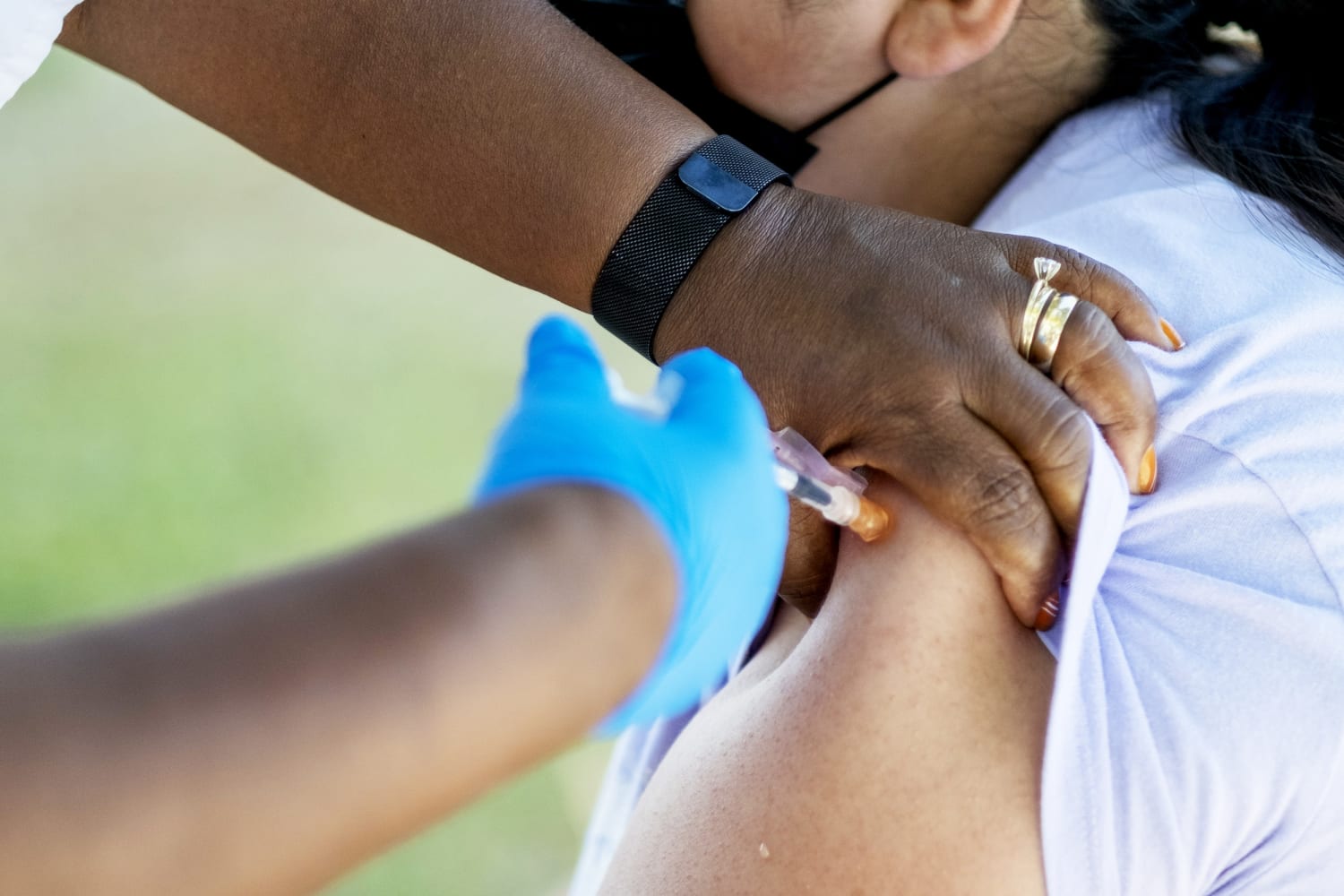
A Centers for Disease Control and Prevention advisory panel on Thursday recommended updated versions of Pfizer-BioNTech’s and Moderna’s Covid boosters, a critical step before the shots can be administered.
The favorable votes came after an extensive discussion among the members of the Advisory Committee on Immunization Practices, many of whom voiced concerns about the lack of clinical data in humans on the updated vaccines.
Full coverage of the Covid-19 pandemic
The recommendation is in line with guidelines from the Food and Drug Administration, which authorized the modified shots for teens and adults Wednesday. Pfizer’s booster was authorized for people 12 and older; Moderna’s for people 18 and up. People are eligible for a booster at least two months after the second dose of their primary series or last booster shot.
The CDC’s director, Dr. Rochelle Walensky, is expected to issue her final signoff shortly, a move that would allow vaccinations to begin.
The booster campaign is not expected to kick off widely, however, until next week, as the federal government works to distribute the new shots to states over the next couple of days. Vaccination sites and some pharmacies may also be closed due to the extended Labor Day holiday weekend.
Before Thursday’s votes, many members of the panel expressed discomfort about the lack of data in humans to evaluate the new boosters, saying the absence of human testing may prevent people from getting the shots. Some panel members suggested allowing the original vaccines to stay on the market. Others said the U.S. should distribute similar vaccines, from Pfizer and Moderna, that target the original omicron strain, called BA.1, and were tested in humans.
The process of tweaking the Covid vaccine to target a different variant is similar to how the flu vaccine is updated each year. Those yearly shots are rolled out without human trial data.
The Biden administration is urging all eligible people in the U.S. to get the new boosters as part of its fall booster campaign. Moving forward, the modified shots will be the only boosters available for teens and adults.
Both modified boosters target the BA.4 and BA.5 omicron subvariants, in addition to the original coronavirus strain, in a single shot.
Officials say the new boosters could be key to slowing a fall surge of the BA.5 omicron subvariant, currently the dominant strain in the U.S. Still, the uptake of the existing boosters remains low, with less than half of people who are eligible to get their first booster dose having received one, CDC data shows.
A model presented by the CDC at Thursday’s meeting projected that — assuming a new variant does not emerge — administering the boosters in September could prevent 137,000 more hospitalizations and 9,700 more deaths compared to administering them in November.
Beyond preventing severe illness and death, boosters may also protect against coronavirus infections, Ruth Link-Gelles, an epidemiologist at the CDC, said in a presentation to the committee.
Vaccine effectiveness against infection appears to wane more slowly after a third dose of any vaccine compared to two doses alone, according to the data. The pattern was seen across multiple age groups, Link-Gelles said.
Pfizer’s and Moderna’s representatives presented data that showed similar vaccines, which targeted the original omicron variant, called BA.1, were safe in people and produced a stronger immune response against BA.1 than the existing vaccines. The vaccines also produced immune responses to the original coronavirus strain that were similar to the existing vaccines.
The companies also presented data to the committee that showed the vaccines that target BA.5 elicited strong immune responses in mice.
The risk of a rare heart inflammation condition called myocarditis caused by the new booster is unknown at this time, Dr. Sara Oliver, an epidemic intelligence service officer for the CDC, told the committee.
Both Pfizer’s and Moderna’s first iterations of the Covid vaccines have been linked to a small but increased risk of the heart condition, particularly in young men.
But it’s unlikely, Oliver said, that the inclusion of the BA.4 and BA.5 components in the new booster would increase rates of the condition.
Still, some committee members suggested widening the gap between doses beyond 2 months to reduce the risk of the condition.
The CDC also offered clearer guidance on when people who have recently had Covid can get a booster. At minimum, people should wait until they’ve recovered from the illness and ended isolation. But people may also consider delaying a booster for 3 months after infection, depending on risk factors.
Follow NBC HEALTH on Twitter & Facebook.
Source: | This article originally belongs to Nbcnews.com










